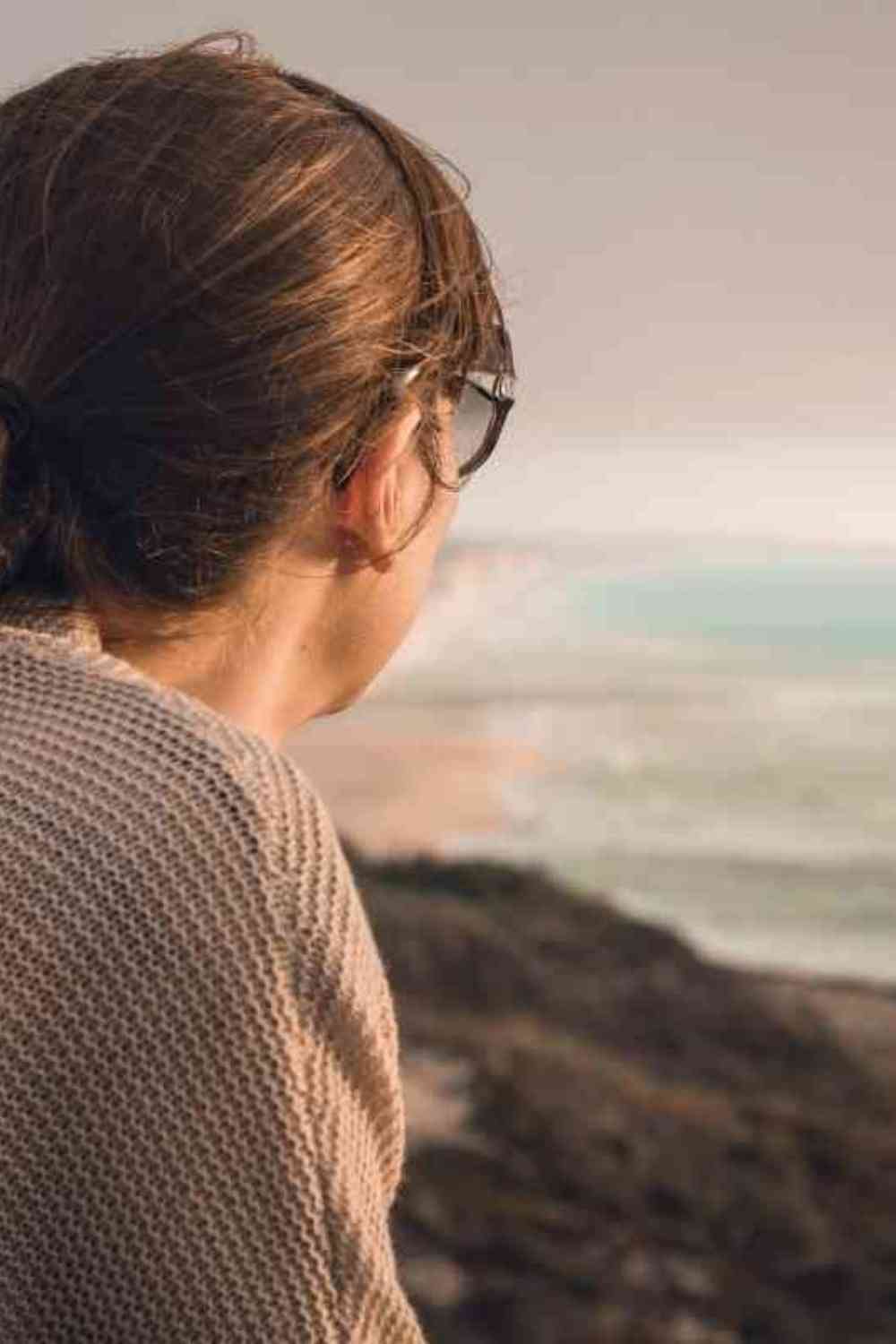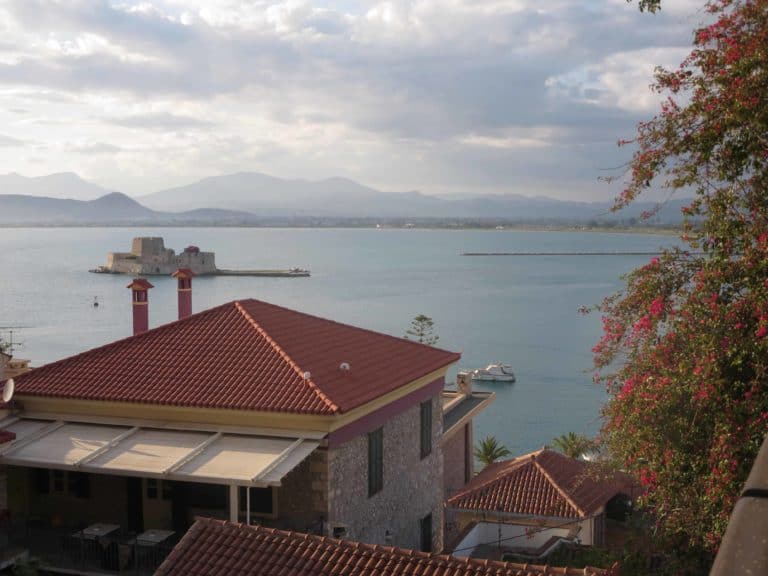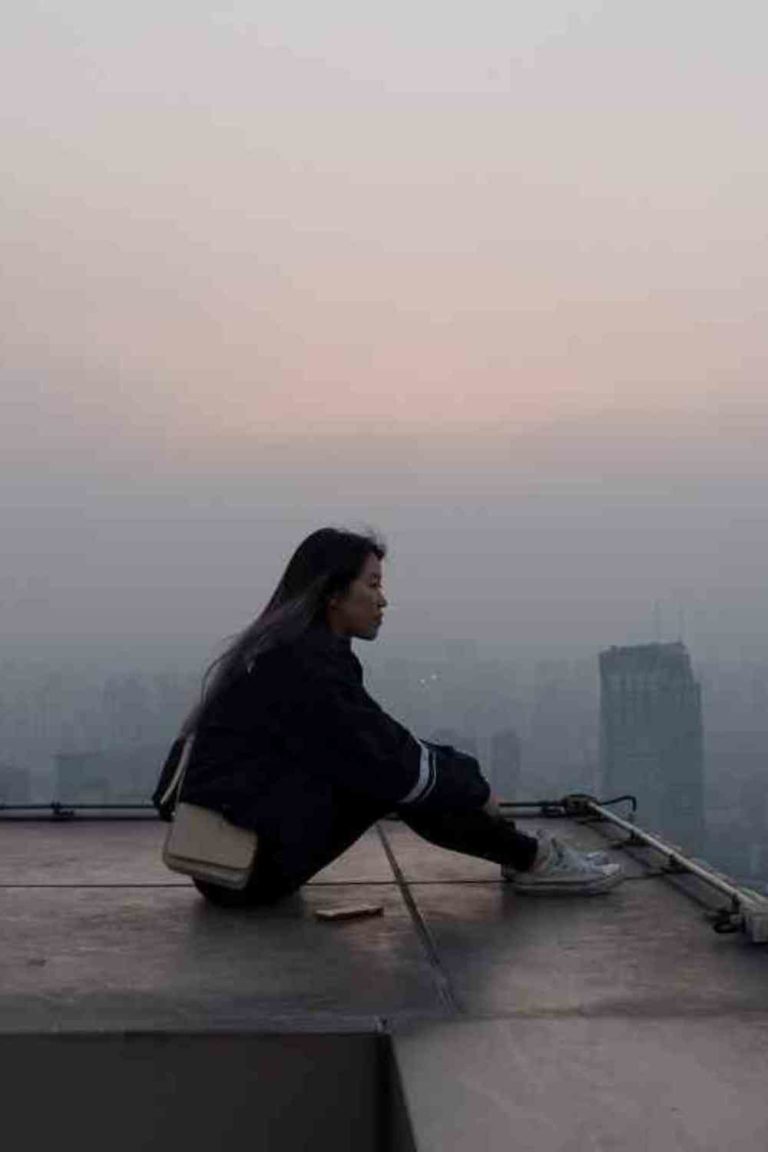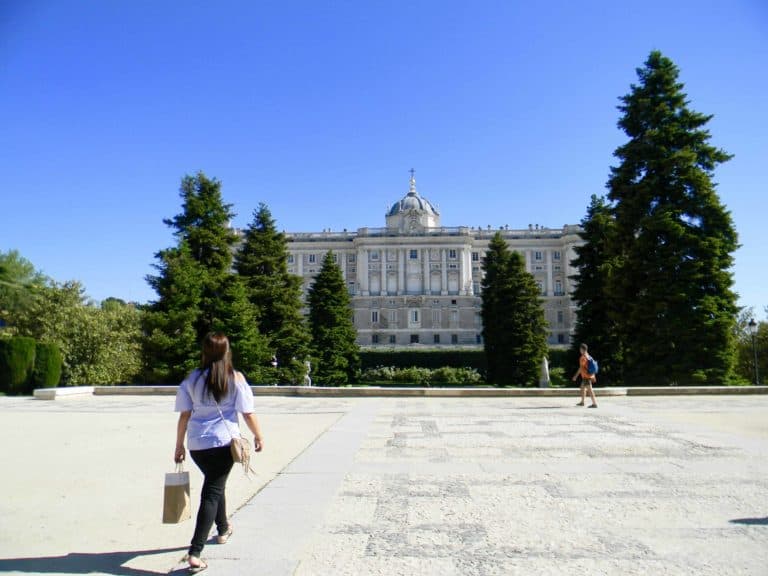The Most Motivating Reverse Culture Shock Post You Need To Read
So, let’s talk reverse culture shock!
You’ve been back from a trip abroad.
You had the time of your life, you felt life on a different level, and perhaps you got a glimpse of who you actually are from doing things for the first time, and jumping into the craziness, lesson inducing, adrenaline-rushing uncertainty and beauty that is travel.
And now that you’re back home – into the known – the comfort zone – the place you know, with the people you know and love – there is something that isn’t clicking back like you thought it would.
Things aren’t snapping back into place quite right.
There’s a certain hesitation that’s almost subconsciously holding you back from “getting back” into the swing of things, re-engaging with your friend group, and getting back into the “real world.”
Whatever that is at this point.
You can’t help but compare certain experiences abroad to what you have available at home -for better or worse.
Random memories come back to you from your travels, and with that, intense feelings of freedom, possibility, spontaneity, and a version of yourself that you forgot or maybe didn’t even know existed before you began your travels, also make their way to your mind and your heart.
And it just feels like there’s so much more to keep exploring. Both on an exploration level and on a personal level.
Like it? Pin it!

Hi there, I get it. I’ve been through it.
This is exactly what I felt when I came back from studying abroad in Greece in 2014.
Here’s a pic of me having the time of my life, learning about the Parthenon while inside the actual structure.

And if you’re reading this far, chances are you also resonate with this.
Maybe you even thought it was creepy-accurate how I got down to some of these details because they’re exactly what you feel.
The photo above was taken when I was studying abroad in Greece – which for me, was the trip that has led me to navigate reverse culture shock in a way that has not only led me to necessary clarity but also an opportunity to unlearn in order to uncover what I truly wanted for myself.
More on this later, and what that means for you.
The truth is, what you’re feeling right about now – whether you’re reading this the day after landing back home after studying abroad, teaching abroad, or just traveling/vacationing, or it’s been months since that life-changing trip – it’s a sneaky case of reverse culture shock that you may be feeling, and if that resonates with you, even one bit, then I invite you to stick around and read this post.
I’m not kidding when I say that this post is what you need to hear right now, and it can even turn around this unpleasant feeling of missing your travels now that you’re back home.
It’s a weird time between adjusting your sleep schedule, your food consumption and what feels good to you, and all the other things that come from returning back home after traveling.
As much as we see in the travel space people talk about culture shocks and the dozens of differences between their culture and a different culture when traveling (which is definitely helpful but it’s only half of the conversation) – there was something that I saw lacking in the space of travel blogs which was the conversation of Reverse Culture Shock.
What is reverse culture shock?
Reverse Culture Shock or “RCS” as I colloquially refer to it as is essentially the experience of arriving back home after traveling and finding it hard to readjust back to your old routines and habits.
Oftentimes this is a byproduct of traveling because as we know when you travel, you’re literally exposed to different ways of being, living, eating, and so on and so forth.
As humans, we adapt to our new surroundings as much as we can, no matter how long we are there, as we learn, observe, and absorb our new surroundings with brand new eyes, an open mind, and excitement to the brim.
We then come back home and may find it hard to get back into life back in our normal settings, no matter if it’s what we’ve always known, and if it’s comfortable.
This is why RCS is a curveball to many, especially when people don’t talk about it.
I know I’ve experienced my fair share, and I know you probably have too, to some degree. And it sucks!
The 4 things I wish I knew about reverse culture shock

Looking back at your own RCS experience, it can be very revealing in terms of the changes that you feel and how RCS highlights those discomforts.
Here, I want to highlight these 4 things that I personally wish I knew about RCS and maybe some that you may not know (or do, depending on when you’re reading this).
- It will happen because it’s a thing. And a very good thing if you know how to look at it.
- People in your home life won’t want to hear all your stories – and that’s ok.
- You’ll start to question more than a few things about your home country – and that’s also ok.
- You’re not alone. Find a group of people online or in person with whom you can openly talk about this.
And about the last point, the truth is that a lot of people actually do experience reverse culture shock.
I wish I could pull up a statistic on how many people have reported experiences of RCS, but the truth is, it’s not something that most people talk about in detail.
No other bloggers really talk about this in-depth, real, and raw, and if you Google search the term “reverse culture shock” you’ll find that the search will be made up of university articles, official government publications, and posts from other establishments, but nothing really personal.
Nothing is really written from an actual, individual point of view. Someone who’s been through it.
And I always questioned that because I really needed it when I was going through it.
And I do want to say however that it is definitely starting to catch on with people to talk about this, but I still hope that people would be more open to talking and blogging more about this topic.
How I experienced reverse culture shock
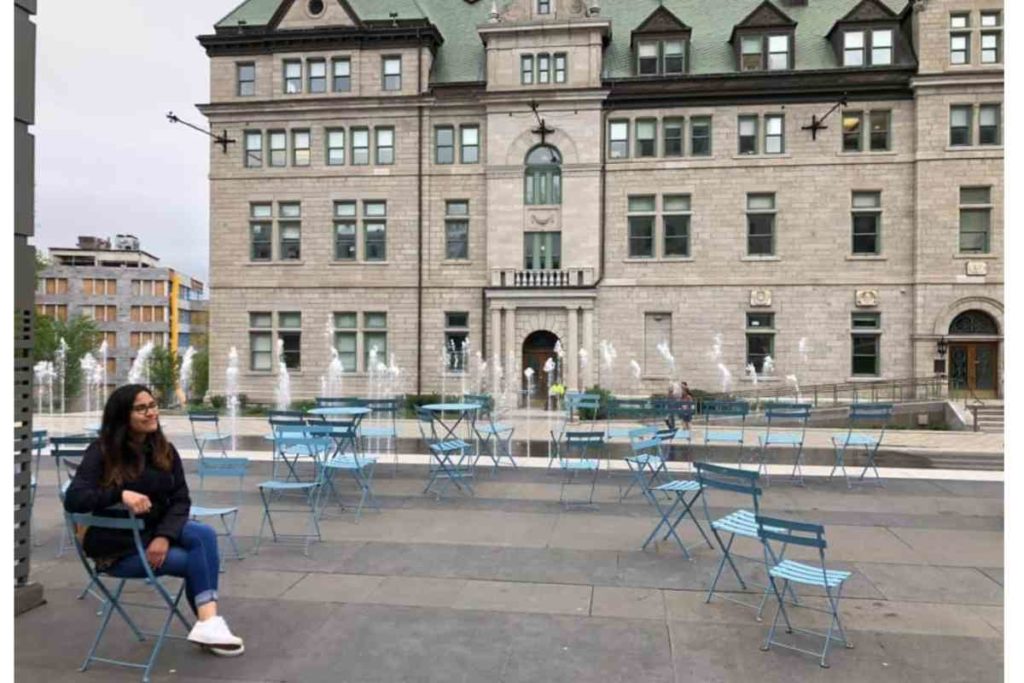
I went through one of my hardest readjustment periods when I came back from studying abroad in Greece back in 2014.
I was in Greece for almost 3 months, and when we came back, my study abroad group mates all flew back to our home state separately because we were coming back in June.
Summer was in full swing by the time we got back, which meant no actual return to campus, no one to talk with about our experiences abroad, no way to get a debriefing, or any way to get any tips as to what we would experience now that we were back home.
I think back to that time and think why they wouldn’t have had something in place, even at least a few emails sent to us with this guidance, especially considering that many of us hadn’t traveled on our own (without family anyways) before this trip and that for some others, this was going to be their first international trip.
I mean, people got passports for this trip, and so did their parents for the first time!
But I digress.
Everything happens for a reason, and if I would have had some sort of guidance like the one I would have liked upon returning back home, I may not be here writing this post, or worse, this blog may not even exist.
Because that trip was the beginning of what would eventually become this blog.
But enough about me – I just wanted to share that so you had some context as to who was writing this, and where I am coming from.
Reverse culture shock may come in different forms, it may come in waves (you’re fine one moment, and then you’re questioning everything the next).
It’s a literal roller coaster. So let me share some examples of how it may manifest for you.
Examples of how reverse culture shock may show up for you
- Not being able to engage in old conversations with friends – can’t relate as much as before to things such as “1st world problems.”
- Realizing things about your home culture that don’t align with your new appreciations, ex: the way people drive their cars everywhere in North America vs. in a European city, accessibility to Museums of all sorts inexpensive or for free abroad and not having many choices available at home, etc.
- Too many choices available to you – decision fatigue – how many cereal types, chips, and food options in general shock you at the grocery store at home vs. where you were, and the freshness of unique dishes you can’t get back home.
- Lack of opportunities to travel for cheap – traveling specifically throughout Europe has a reputation for being really inexpensive (hello 20 euro train from Madrid to Lisbon…) that when you go back home, you realize that those prices are long gone pretty much, even to travel to the state next to you.
This isn’t at all to paint the home culture (North American) as bad, simply just that these are some examples of how reverse culture shock may creep up, for those who have experienced this before, or those who may be suspecting differences in who they were before they traveled, and now are finding it hard to readjust.
Read More: Travel Planning Resources
How to navigate reverse culture shock in the smoothest way possible?
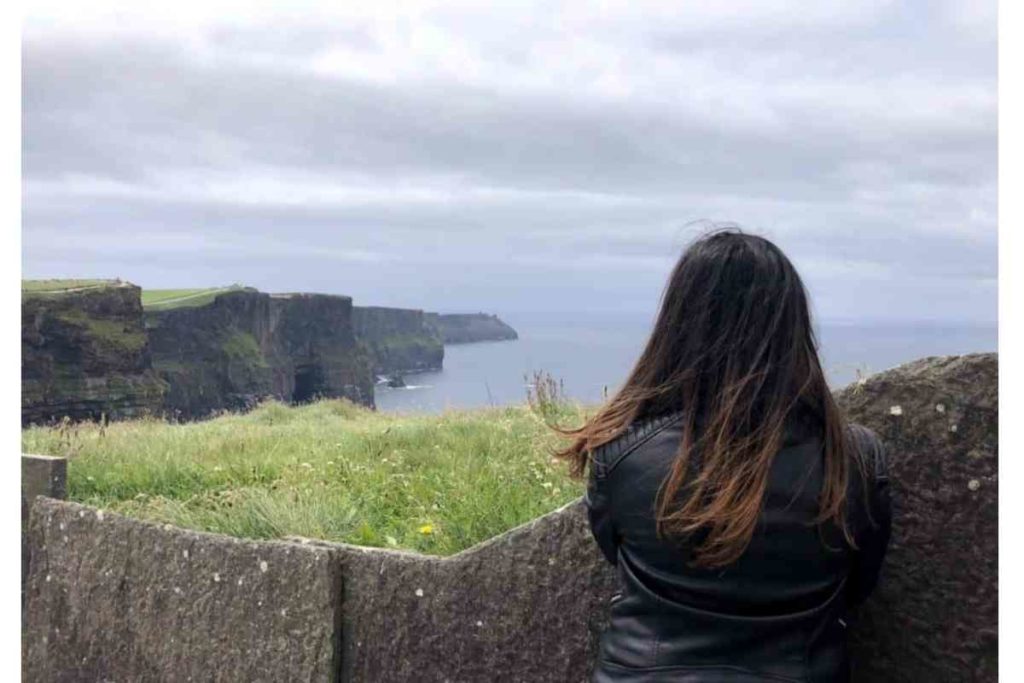
I have experienced my fair share of this unpleasant feeling – returning back home to realize I just don’t align with it, or the mentality of the people here (nothing wrong with them or their way of thinking, it’s just different).
But if there is something I really want to get across here, especially if you’re going through this feeling right now, it’s that this is completely not only normal but actually necessary.
Why? Why is it necessary to feel uncomfortable in your own home? Because that’s how growth begins, and that’s how you get more clarity over what you actually really want for yourself, and your life moving forward. Let’s think about this a bit longer.
Go to a library, coffee shop, a place where you feel comfortable, with a nice view, and go write how you feel. Be unapologetically yourself, and honor your feelings.
If you feel angry about something that triggered you since being back home – write about it.
Or if there is something that has been on your mind that you’ve realized since leaving your destination – write that down too.
If you feel a mix of feelings: happy to be home and see your family and friends, but also missing a certain vibe, feeling that you had available to you while abroad that you just can’t shake off, be sure to jot that down too.
This is for your eyes only, you shouldn’t limit yourself or carefully curate what you want to say – just say it.
It will be most revealing as you’re writing or when you look back on it to see where you were and reflect and uncover those parts of yourself that you didn’t know about yourself until you started traveling.
And then you can find ways to integrate more of that into your everyday life or find ways to make a change that you feel is necessary.
Read More: How To Continue Finding Clarity From Travel At Home- The Practical Way
I realized after doing this same practice that I am suggesting you do, that maybe there was an empowered way of seeing reverse culture shock. Rather than seeing RCS as a readjustment into the comfort zone of my country after becoming exposed to the world and experiencing expedited personal growth, what if I switched it to view it as the transformation that had begun with and from my travels that wasn’t meant to go away?
I realized that maybe the struggle of reverse culture shock came from trying to fit into our previous thought patterns, ways of seeing the world, ways of seeing opportunities to travel, learn and grow outside of our comfort zone, and so much more.
Coming back and getting back into ways that maybe we don’t want to try to fit back into because things just didn’t resonate with us back home.
That doesn’t mean we’re anti-anything, it just means expansion.
Welcoming in the growth.
Personally, I felt like wanting to do things on my own terms.
With what I knew made me happy from traveling and getting to know myself and my limits.
And the same can definitely be for you too.
Traveling, being free, not doing what others were doing because it was “known” or comfortable, especially because I was never sure I wanted that to begin with.
So maybe for you, It’s not reverse culture shock that you’re experiencing, it’s transformative travel.
Read More: 7 Very Helpful Post Travel Blues Tips For Beginners
It’s not reverse culture shock that you’re experiencing, it’s transformative travel.
What is transformative travel?

Transformative travel is essentially the changes in perspectives that you experience from being in a completely different environment, culture, society different from yours, and the way it challenges preconceived notions you had about yourself and the world around you.
It is a travel experience or an experience within the journey that has changed something for you, on a deep and personal level, or even something small.
This is a topic I’ve written and spoken about a lot in the past on the blog and with other travelers, and in my opinion, it has become an empowering perspective to view this shift that happens to travelers when they start traveling and return back home.
Read More: What Is Transformative Travel? And How To Experience It On Your Next Trip!
If you don’t know where to start and feel that you rather have some guiding prompts, which I totally get. It can be an overwhelming experience after all.
Make sure to download my FREE Transformative Travel Journal Prompts Template – a journal with questions designed to help you understand where you’re at after traveling, emotionally and mentally, even when your body is physically back home.
It’s a way to collect yourself after traveling amongst re-adapting back to your home culture and life, and it may help you begin your journey on arriving back home and discovering what your travels may be trying to tell you, about you.
Leave me your name and email below to get your copy!
Although there is nothing wrong with the term reverse culture shock, if that term resonates with you at a certain point, then that’s more than fine.
But eventually, I found that I wanted to start highlighting the transformations more than the struggles of where I was physically and emotionally.
I still use the term reverse culture shock.
But, I’m aware of what it can make me feel.
Concluding thoughts on reverse culture shock
Well, that was a pretty long post. If you’re still here, thank you ❤️ I truly hope this resonated with you if you’re currently going through this interesting shift.
What is your reverse culture shock experience?
Are you currently going through one right now?
Let me know by dropping a comment below.
You don’t have to go about it on your own, and it really makes a difference when you talk about it with someone.
Going through my reverse culture shock gave me many lessons that are still as loud as the day I came back from my first trip overseas, but one of the bigger lessons is this: your adventures don’t end the moment you land back home – they’re just beginning if you look into those feelings that RCS creates.
That’s a different kind of tough love right there?
But one that could set you free in a very empowering and authentic to your way.
To more travel moments like this ✨

Like it? Pin it!

Reverse Culture Shock or “RCS” as I colloquially refer to it as is essentially the experience of arriving back home after traveling and finding it hard to readjust back to your old routines and habits.
Oftentimes this is a byproduct of traveling because as we know when you travel, you’re literally exposed to different ways of being, living, eating, and so on and so forth.
As humans, we adapt to our new surroundings as much as we can, no matter how long we are there for, as we learn, observe, and absorb our new surroundings with brand new eyes, and an open mind.
We then come back home and may find it hard to get back into life back in our normal settings, no matter if it’s what we’ve always known, and if it’s comfortable.
This is why RCS is a curveball to many, especially when people don’t talk about it. I know I’ve experienced my fair share, and I know you probably have too, to some degree. And it sucks!
Yes, very much a thing. But a good one I think at the end of the day. At first, it feels super uncomfortable and even confronting, but it’s serving you in many ways. For example, you leave the comfort zone that is your home country, you are plopped into a different culture with different everything, you live in that new environment for a bit, adapt (because that’s what we do as humans), you learn and start to appreciate things you see/ways of living, you observe people and their lifestyles, all the way down to their eating times to how many people drive vs. drive a car, etc., you come back home, and it’s another readjustment, but one you didn’t expect. The differences you start to notice between your home culture and your destination’s culture will give you clarity and confidence to choose what it is that you value, where you align with most, where you feel most happy, etc. Is that not a good thing?
Journaling, talking with someone, reading posts like these from real people who have been through the experience, and even send them an email or DM if you feel like their experience resonated with you. It can be tough, you don’t have to go through it alone 🙂
Because it’s a byproduct from traveling. Because as we know when you travel, you’re literally exposed to different ways of being, living, eating, and so on and so forth that it is only natural and normal to adapt to it, come back home, and look at it differently. You question things you didn’t know before, and you ask yourself if it’s still something or a part of your culture you follow.

